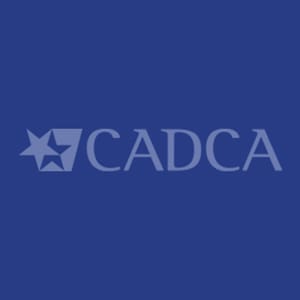As a parent of three teenagers, I know it’s hard to consider the possibility that your child could be abusing substances. But awareness is critical in helping to prevent abuse from occurring in the first place. We need to educate ourselves to help prevent substance abuse in our homes. And we need to educate others to help combat this problem in our communities.
With those needs in mind, Stop Medicine Abuse (SMA) is thrilled to partner with CADCA again this October for National Medicine Abuse Awareness Month (NMAAM). We are especially proud to have a shared mission of reducing and preventing substance abuse.
The SMA campaign works to raise awareness of teen abuse of over-the-counter (OTC) cough medicines containing the active ingredient dextromethorphan (DXM). While medicines with DXM are effective and safe when taken according to directions, one in 30 teens has abused DXM to get high – sometimes by taking up to 25 times the recommended dose. As with the abuse of other substances, this can lead to impaired physical coordination, slurred speech and disorientation.
It’s scary to think about the side effects of substance abuse, but we can all contribute to prevention efforts in our communities.
Here are five things you can do to get involved during NMAAM this year:
- Educate yourself. Learn about the warning signs y side effects to ensure abuse doesn’t go unnoticed in your home. Keep an ear out for slang terms and make note of changes in your child’s behavior, physical appearance or friends.
- Monitor. Take inventory of the OTC medicines and prescription drugs in your home. If you regularly keep tabs on what you have, you can more easily notice when something goes missing without explanation.
- Talk with your teen. Have an open conversation with your teen about the risks of substance abuse. Be sure to keep the door open for an ongoing dialogue. It’s not an easy conversation to have, but teens who learn about the dangers of abuse from their parents are 50% less likely to misuse substances.
- Inform others. Talk with parents and other adults who are active in your teen’s day-to-day activities. Share what you’ve learned and make sure they are aware of both the dangers of substance abuse as well as what they can do to prevent it. You can also use these resources developed by CADCA to spread the word on your social media channels.
- Make it a community effort. You can join your local anti-drug collation and participate in CADCA’s Dose of Prevention Challenge . This is your opportunity to host an educational event, implement a campaign of your own or even conduct a contest encouraging teens to share why they are inspired to live drug-free.
For more information on how to prevent medicine abuse, visit StopMedicineAbuse.org and follow us on Facebook y Gorjeo. For more information on getting involved during NMAAM this year, visit PreventMedAbuse.org.
Anita Brikman joined the Consumer Healthcare Products Association (CHPA) in 2016 and leads the association’s communications and public affairs functions. As a member of the senior management team, she is responsible for establishing and directing the organization’s communications strategies and goals. Anita is passionate about healthcare issues, with over two decades of experience as a news anchor and health reporter in major television markets – making medicine abuse awareness and prevention efforts important to her. She is also the mother of three teenagers.



